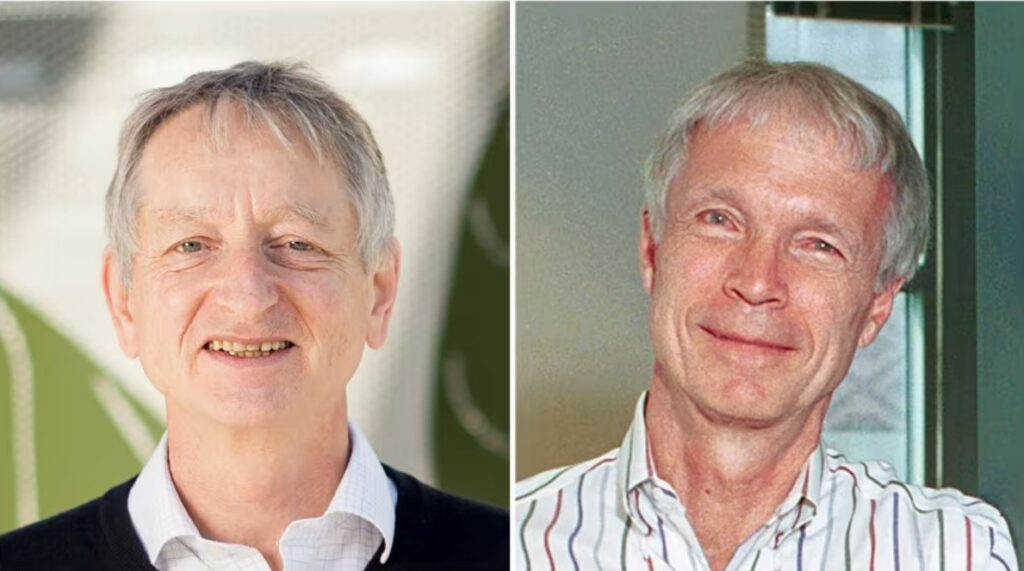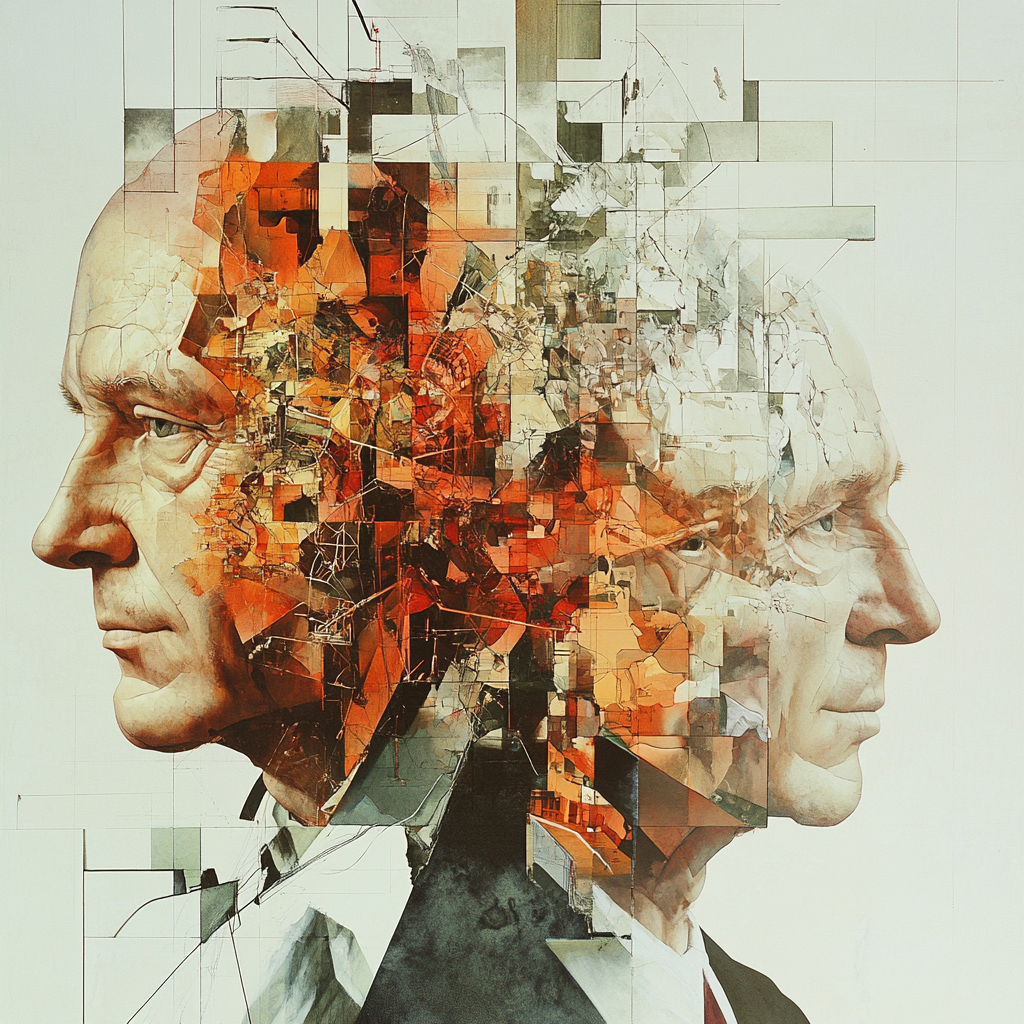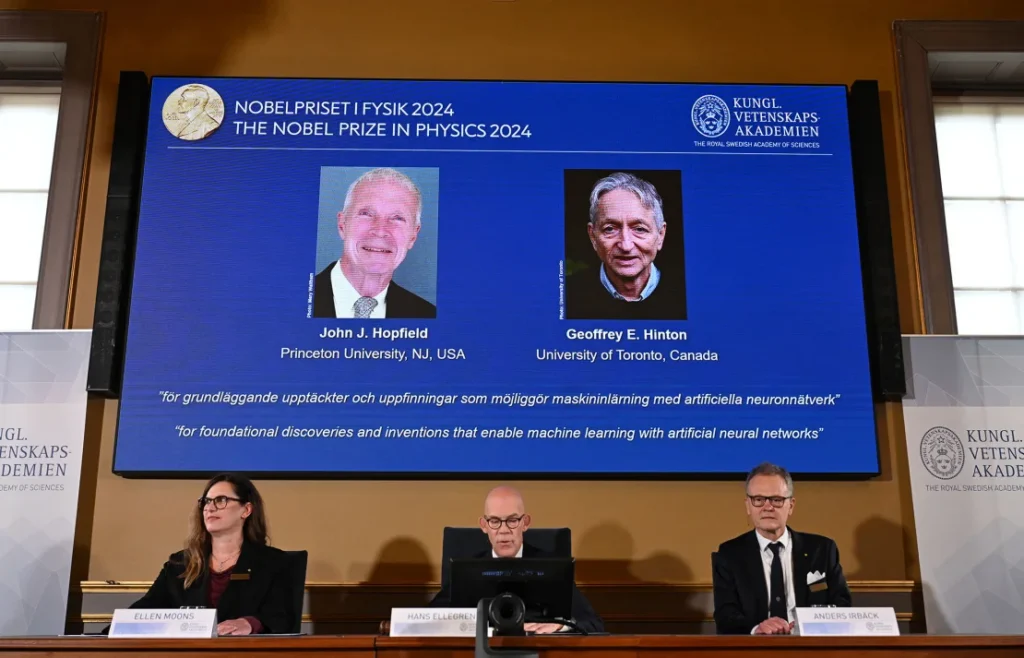
Credit: AP
Dr. Marco V. Benavides Sánchez.
In a remarkable turn of events that signals the increasingly pivotal role of artificial intelligence in our lives, Geoffrey Hinton and John Hopfield have been awarded the 2024 Nobel Prize in Physics. This recognition not only crowns their lifelong commitment to advancing machine learning but also significantly marks the first instance where such an accolade has acknowledged purely theoretical contributions to AI and neural networks.
The Revolutionary Path of Geoffrey Hinton
Often hailed as the “Godfather of AI,” Geoffrey Hinton’s research has paved the pathways upon which the modern landscapes of technology tread. The core of his life’s work—artificial neural networks—draws inspiration from the biological neural networks found in the human brain. Mimicking these biological processes, Hinton developed algorithms that allow machines to learn from data in a way that resembles human learning, laying the groundwork for what we today celebrate as deep learning.
Deep learning, a subset of machine learning featuring multi-layered neural networks, has revolutionized numerous technology sectors by enhancing machine perception areas such as image and speech recognition. The impact of Hinton’s work is profound, influencing countless applications, from the algorithms that curate our social media feeds to the systems that drive autonomous vehicles.

John Hopfield’s Legacy of Innovation
Sharing the limelight with Hinton, John Hopfield contributed to the foundational aspects of neural networks through his development of Hopfield networks in the early 1980s. These networks introduced a way for computers to store and retrieve memories much like the human brain does, serving as models for understanding human memory and laying the foundation for developing associative memory in AI systems.
Hopfield’s approach, borrowing concepts from statistical physics, provided a robust framework that linked biological and artificial forms of intelligence. His models have not only enhanced our understanding of the brain’s functionalities but have also led to practical applications in pattern recognition and optimization problems, which are integral to complex decision-making systems.
The Nobel Prize: A Nod to AI’s Impact
The decision by the Royal Swedish Academy of Sciences to award the Nobel Prize in Physics to two giants in theoretical science underscores the profound impact artificial intelligence and machine learning have on modern scientific inquiry and technological advancement. It acknowledges the shift from traditional physics to areas that promise to redefine our technological future.
Ethical Reflections and Future Horizons
While the recognition of Hinton and Hopfield is a cause for celebration, both laureates have voiced concerns about the path AI is taking. Hinton has openly discussed the potential risks associated with advanced AI systems—including ethical considerations and the possible surpassing of human intelligence. These concerns are reflective of a broader anxiety within the scientific community about AI’s rapid development and its long-term implications on society.
In their acceptance speeches, both emphasized the need for continued ethical deliberation and responsible innovation in the development of AI technologies. Their cautionary stance highlights an awareness of the dual-edged nature of their creations and a call to action for future generations to tread wisely.

Conclusion
The awarding of the Nobel Prize in Physics to Geoffrey Hinton and John Hopfield not only celebrates their monumental contributions to the field of artificial intelligence but also serves as a beacon for future scientific endeavors in AI. As we stand on the cusp of what may be the next great epoch in scientific and technological evolution, their work reminds us of the power of human curiosity and ingenuity—and the responsibilities that come with it.
This Nobel Prize not only honors two outstanding scientists but also marks a milestone in the recognition of AI as a fundamental component of modern science, poised to drive forward our understanding of the universe and our place within it.
For further information:
(1) Geoffrey Hinton, the ‘Godfather of AI,’ Wins 2024 Nobel Prize in Physics.
(2) ‘Godfather of AI’ shares Nobel Physics Prize.
(3) Geoffrey Hinton and John Hopfield share Nobel Prize for work on AI – BBC.
(4) “Godfather of AI” Geoffrey Hinton, Princeton University scientist John ….
(5) Physics pioneers including ‘Godfather of AI’ Geoffrey Hinton win Nobel ….
(6) ‘Godfather of AI’ shares Nobel Prize in physics for work on machine learning
#Emedmultilingua #Tecnomednews #Medmultilingua

Leave a Reply